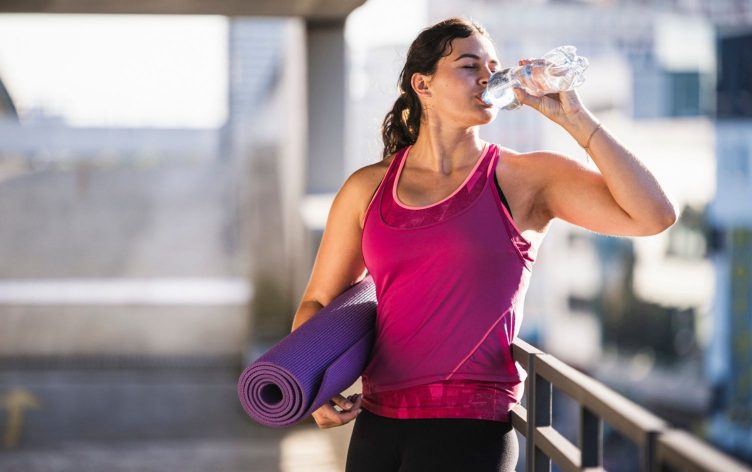
The Drinks That Are Worth the Calories (or Not)
The next time you boil the kettle or reach into the refrigerator to quench your thirst, consider whether your go-to beverages are helping or hurting your health.
“Liquid calories add up quickly,” says Vicki Shanta Retelny, RDN, dietitian and author of “The Essential Guide to Healthy, Healing Foods.” “Research shows that the brain does not register liquid calories the same way as solid food calories [so] you can be drinking hundreds of excess calories without realizing it.”
There’s more to consider than just calories, too. Some beverages have major health benefits — ranging from a decreased risk of heart disease and enhanced longevity — while others are linked with obesity, poor sleep quality and more rapid aging.
WATER
Water helps regulate temperature, lubricate joints, fuel metabolism and move waste. Although it might be the ultimate health beverage, a 2018 survey found 77% of Americans consumed too little water to meet their daily health needs.
“You get water in vegetables, fruits, soups, broths, tea and coffee,” Retelny says. “But sipping it unadulterated throughout the day is the key to good health.”
Drinking water could also be the key to weight loss. In one study, those who drank two glasses of water before a meal consumed 22% fewer calories. Dehydration has also been linked to symptoms such as fatigue, dizziness, reduced alertness and increases the production of cortisol, the stress hormone.
Need extra incentive to make water your drink of choice? Retelny suggests trying sparkling water with a spritz of lemon, lime, clementine or grapefruit for added flavor and fizz. As long as there is no added sugar, these fizzy waters offer the same benefits as plain water.
TEA
Sipping a mug of tea has been associated with health benefits ranging from improved cognitive function to a lower risk of heart disease. New research found tea drinkers also lived longer than their non tea-drinking peers.
“For thousands of years, tea, especially green tea, has been revered for its medicinal properties,” Retelny says. “Green tea contains antioxidants and specific plant compounds called catechins that fend off inflammation, oxidation to cells or damage from free radical compounds … and can keep bones strong, too.”
Make sure to let your tea cool a little before drinking. Drinking tea warmer than 140°F (60°C) is associated with an elevated risk of esophageal cancer, according to 2019 research.
COFFEE
Your morning cup of joe provides more than just a jolt of caffeine. Coffee has been associated with a range of health benefits from a reduced risk of dementia and lowered rates of depression to a decreased risk of colorectal cancer. Drinking coffee instead of sugar-sweetened beverages also reduced the risk of Type 2 diabetes.
“Coffee contains an array of polyphenols, which are antioxidant compounds that may be beneficial for overall health,” Retelny explains.
ALCOHOL
A tipple could help expand your life. New research linked moderate alcohol consumption with an increased likelihood of living until age 90.
“Alcohol’s link to longevity is still somewhat of a mystery,” says Retelny. There are some theories that certain alcoholic beverages, such as red wine, contain plant compounds that may be cardio-protective. Enjoying a drink may also alleviate stress.”
The health benefits are associated with drinking in moderation, which is one drink per day for women and two drinks per day for men. The research showed binge drinking was associated with a shorter lifespan.
SUGAR-LADEN COFFEE DRINKS
The vanilla latte or caramel macchiato that help get you through the afternoon slump could be wreaking havoc on your sleep.
A 2020 study published in the journal Sleep Health found women who drank at least one high-calorie coffee drink per day reported poorer sleep quality compared with women who didn’t report drinking any sugary coffee beverages.
“It’s well-known that caffeine is a stimulant and contributor to poor sleep,” explains study co-author Deborah Rohm Young, PhD, director of behavioral research at Kaiser Permanente Southern California. “The combination of sugar and caffeine may alter circadian rhythms.”
The takeaway: If you’re having trouble sleeping, ditching the sugary, high-calorie coffees could help ease insomnia.
JUICE
Fruit juice might contain vitamin C and potassium, but it’s also chock full of sugar and often contains the same amount of calories as soda. Even though the sugar in fruit juice is natural, research published in JAMA Open Network concluded your body metabolizes them the same as added sugar (like those in soda) — and their negative health effects, including weight gain and increased risk of Type 2 diabetes, cardiovascular disease and all-cause mortality (the risk of dying from any cause) don’t make up for the slight nutrition benefit.
Instead of fruit juices, eat a piece of fruit. Thanks to the fiber content of whole fruits, the sugar is absorbed more slowly and won’t spike your blood sugar like fruit juice; fiber also helps you feel full longer.
DIET SODA
The zero-calorie beverage has been linked to some big health risks. Research has linked diet drinks to weight gain, higher risk of Type 2 diabetes, dementia and even premature death. The latest data found pairing sucralose, the artificial sweetener in diet soda, with carbs, the risk of metabolic syndrome, a combination of higher blood sugars, elevated blood pressure and weight gain.
“The downside of diet soda is that it’s full of artificial chemicals and colorings and devoid of any nutritional value,” Retelny says. “Some diet sodas contain sugar substitutes also called polyols, such as xylitol, maltitol and sorbitol, which ferment in the digestive tract and can cause gas, bloating and abdominal pain.”
Retelny warns that drinking too much diet soda might also diminish your water intake, leading to dehydration.
Unlock an experience that’s like having a dietitian, trainer and coach — right at your fingertips. Go Premium for expert guidance and exclusive tools that will help you reach your personal health goals.





